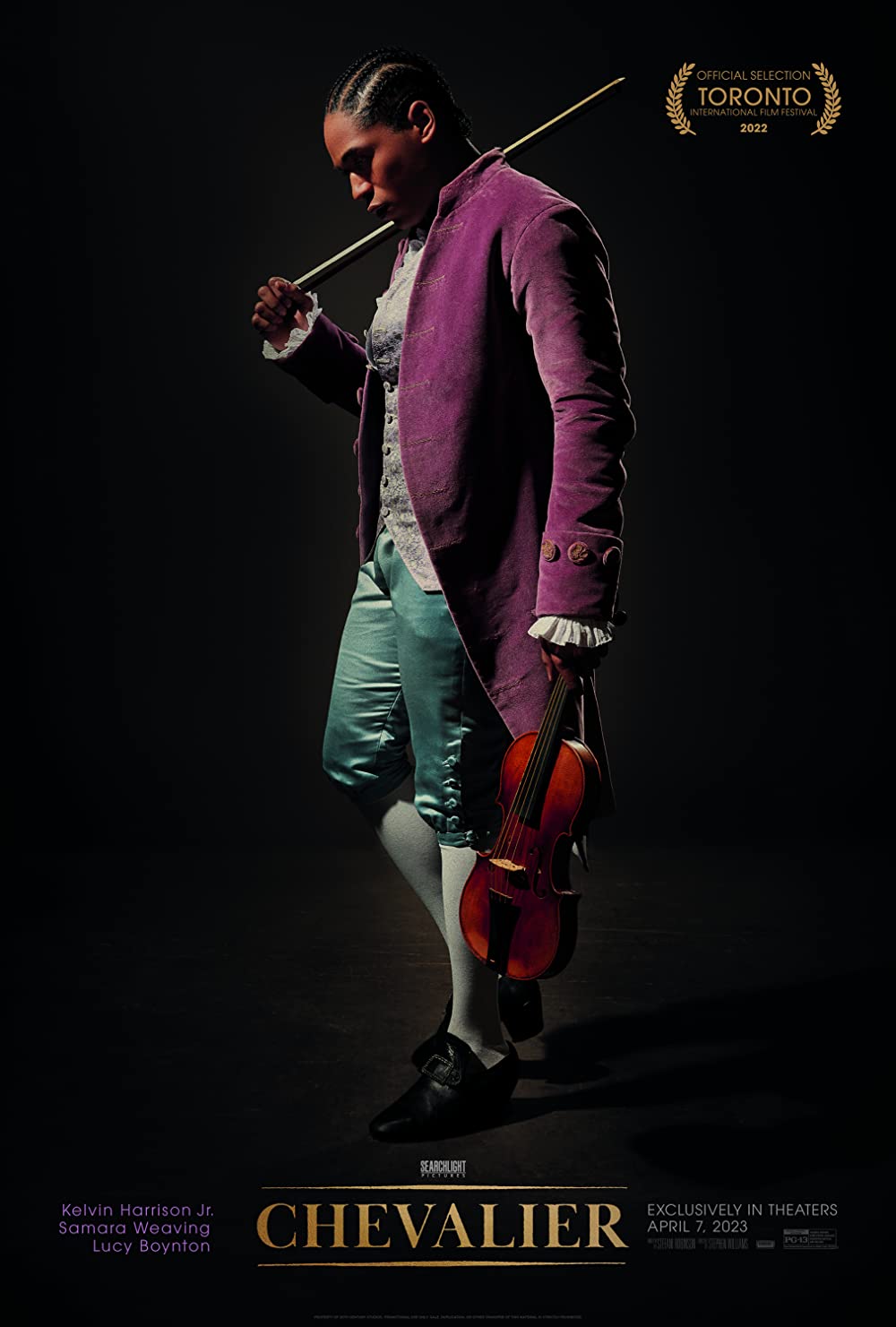
02 May Chevalier Review by Amaru Moses
CHEVALIER
Y’all remember the final rap battle in 8-Mile between Eminem’s B. Rabbit and Anthony Mackie’s Poppa Doc? Rabbit went relentlessly hard, honestly owning up to his own flaws before his opponent could do it, so he could then turn the disses around and rip Doc a new one, leaving him utterly speechless on stage and giving Rabbit the forfeit win. Well, the opening of the pre-French Revolution biopic Chevalier plays like a classical version of that with violins. And it’s with that much ferocity that Kelvin Harrison Jr. attacks the title role. Since 2019, when Harrison delivered two standout lead performances (Luce & Waves), he has continued to shine in every role he’s played, and this turn as the far-too-unknown pioneer composer Joseph Bologne, Chevalier de Saint-Georges is another step towards stardom for the prominent young actor.
The film follows Bologne from his early beginnings as the illegitimate son of an African slave and French plantation owner placed at the doorstep of a prestigious musical academy. We see him use his talents to rise through the ranks of French high society and confidently challenge one of Europe’s most prestigious composers to the highest musical honor in France before an ill-fated love affair and society’s racism forces him to rethink his place in France’s “Ancien Regime”. After putting his full talents on display in the opening scene (Harrison really played the violin in the role), he moves throughout the movie with an unabated vigor and insatiable charm that pulls everything in the scene towards him. Whether winning fencing matches (which he also did himself), courting (or disappointing) possible love interests, proving racist doubters wrong, or inspiring the bubbling masses into their revolution, everything Harrison does on screen is powerful.
His performance isn’t the only aspect of the film that attacks with full force. That relentlessness is matched by director Stephen Williams and cinematographer Jess Hall’s use of tracking shots for the majority of the film. The frame stays intensely focused on foreground characters as it moves through each landscape, making you feel like you are standing next to the characters, partaking in their conversations. It adds an energy that pushes the film to an unwavering pace, highlighting not only the strong performances, but also some of the film’s flaws. Samara Weaving plays Marie-Josephine, renown opera singer and Bologne’s love interest, and while her quiet strength is a magnificent foil to Harrisons’ braggadocio, the force of Williams’ direction highlighted early instances where she would slip out of her aristocratic accent or have some less-than-perfect lip-syncing (even though she sung under the recorded track). Similarly, that pacing emphasized an initial heavy-handedness in the racially fueled dialogue. Early racist encounters lacked the subtlety needed to make the story feel like anything more than another generic look at the injustices slave descendants faced around the world and throughout history. So, while I was thoroughly enjoying watching Harrison navigate 18th century French upper-class social dynamics, the film’s early scenes weren’t pushing Chevalier past anything more than a surface-level biopic.
Luckily, much of the early critiques evened out as the fierce narrative continued through the film’s 128-minute runtime, creating some touching points of tender subtext sprinkled amongst Harrison’s powerful performance, William’s dynamic direction, and a great supporting cast. In the end, Chevalier is a thrilling retelling of a lesser known pioneer’s contribution to world history that is more than worthy of a watch.
Review by Amaru Moses


No Comments